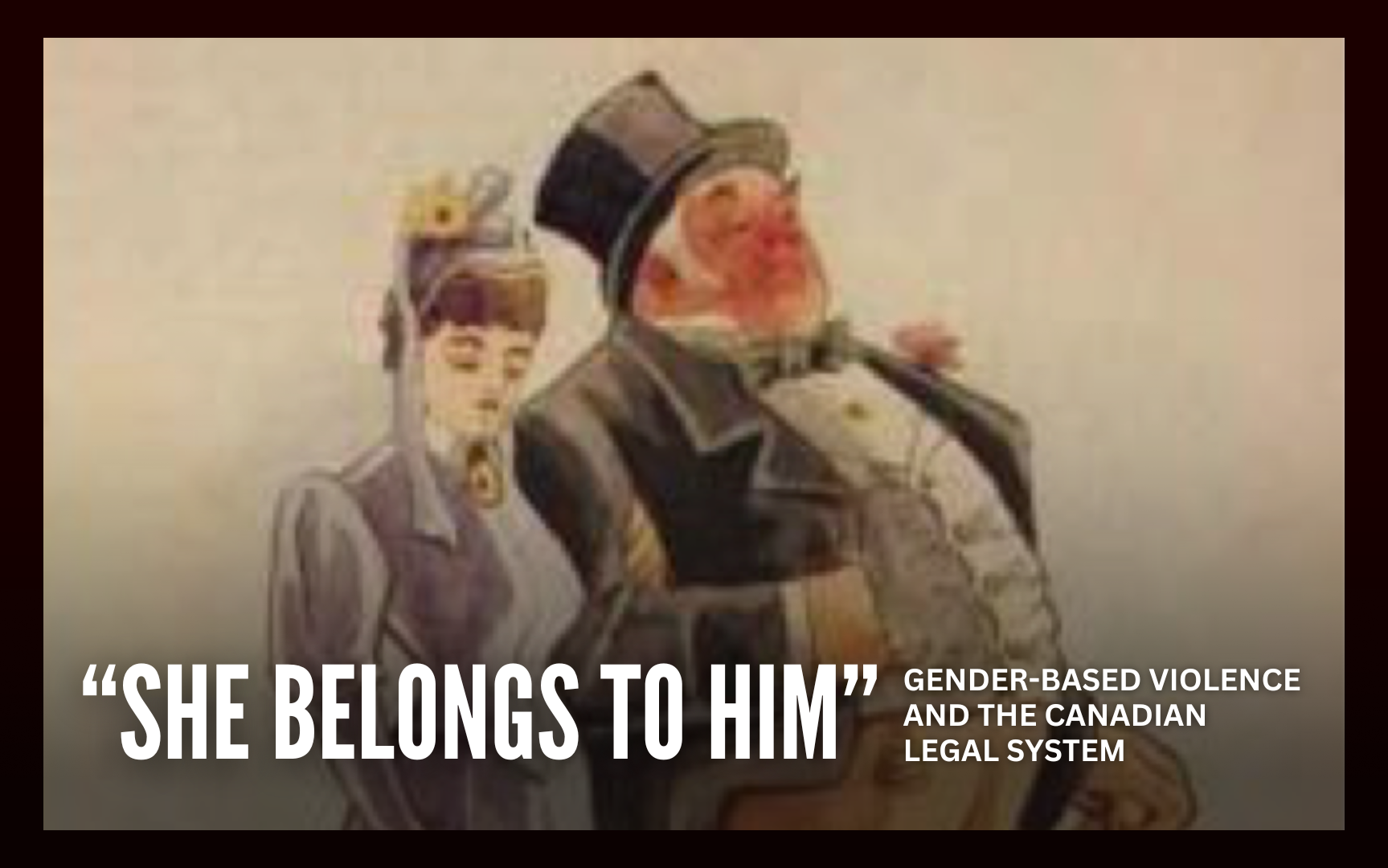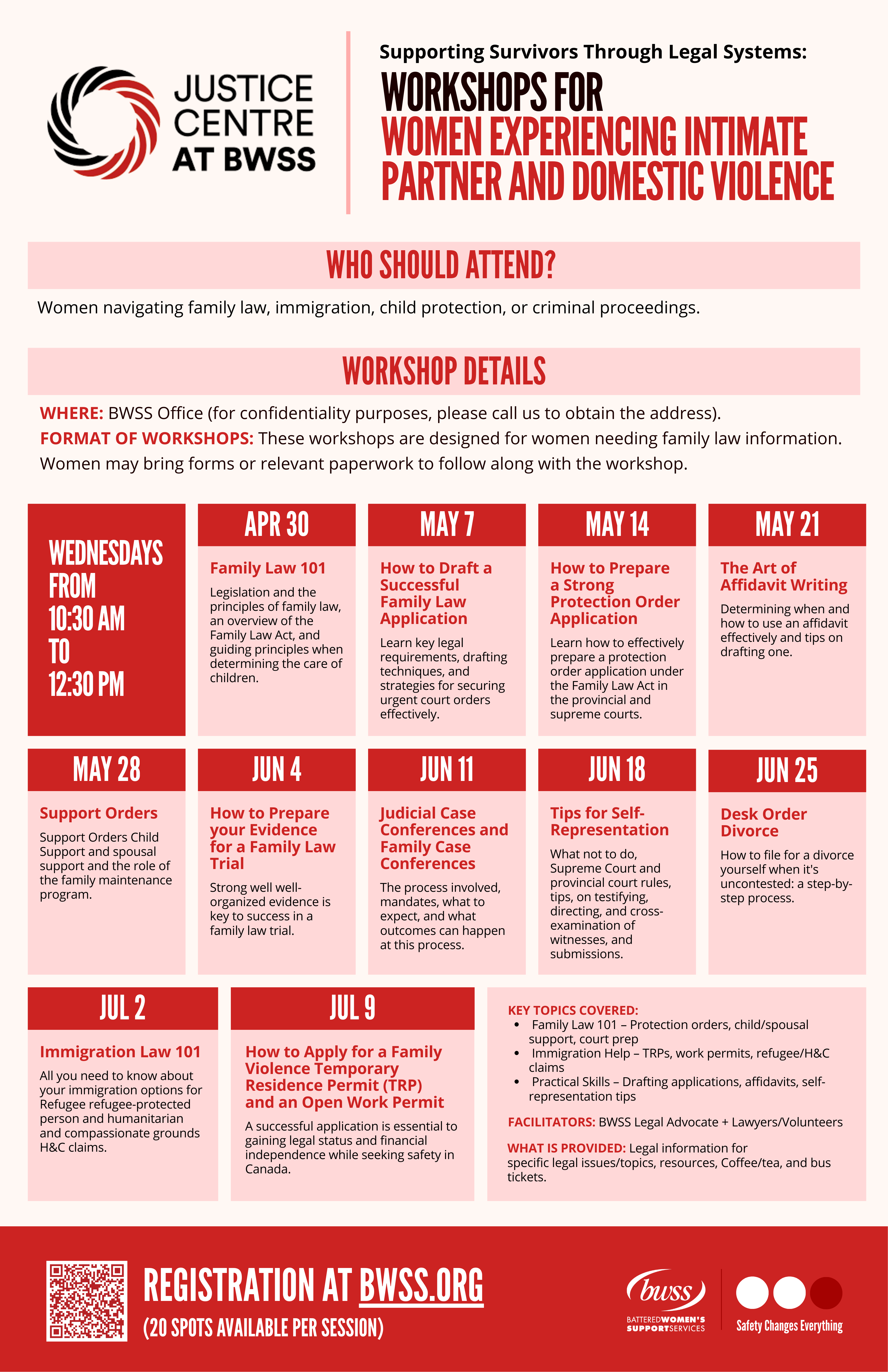
For women leaving intimate partner and domestic violence, the legal system in Canada is often not a pathway to justice, but another source of trauma. Despite decades of feminist advocacy and efforts to reform the law, Canada’s legal systems continue to reflect colonial and patriarchal foundations, failing to meet the complex needs of women experiencing gender-based violence.
From Property to Personhood: A Legal Legacy of Control
Canadian law, rooted in British common law traditions, historically treated women as the legal property of their husbands or fathers. Under the now-obsolete doctrine of coverture, a married woman had no legal identity separate from her husband. She could not own property, sign contracts, or seek redress in court.
While these laws have been repealed, the legacy of this gendered legal framework persists. Today, women who experience violence continue to face systemic barriers, disbelief, and inequity as they navigate family, immigration, child protection, and criminal legal systems. In many cases, the very structures meant to protect survivors are used to further marginalize and control them.
Historically, under British common law—imported and upheld in Canada through colonial legal systems—children were considered the property of their fathers, not their mothers. Fathers had near-total legal authority, including control over custody, education, and discipline. Mothers had no custodial rights and could be denied access to their own children upon separation or divorce.
Children born outside of marriage were labelled “illegitimate” or “bastards”, a legal status that excluded them from inheritance, legitimacy, and social recognition. This doctrine of legitimacy reinforced patriarchal control over family structures and punished women for sexual and reproductive autonomy.
This legal legacy continues to influence family law today, where custody decisions and parenting arrangements often prioritize parental rights over children’s and survivors’ safety.

The Murdoch Case: A Wake-Up Call
A defining moment in the history of feminist legal advocacy in Canada was the Murdoch v. Murdoch decision in 1975. Irene Murdoch, an Alberta woman, had experienced years of violence from her husband while working full-time on their ranch. When she applied for divorce and requested a share of the ranch she had helped build, the Supreme Court of Canada denied her claim, ruling that her contributions were not sufficient to establish a legal interest in the property.
The ruling sparked national outrage. It became clear that women’s unpaid labour in marriages—and the abuse they endured—was not recognized or valued by the legal system. The Murdoch case became a flashpoint for reform, fuelling a movement to change matrimonial property laws and bring attention to the economic dimensions of domestic violence.
Mediation and the Illusion of Equality
Today, a major concern for advocates is the growing emphasis on Alternative Dispute Resolution in family law—particularly mediation. While promoted as a faster and less adversarial process, mediation assumes equal power between parties, ignoring the dynamics of coercive control, fear, and ongoing abuse that often continue after separation.
BWSS has long critiqued this shift, noting how abusive partners weaponize legal systems—especially family court—to maintain power and control. Survivors are forced into unsafe negotiations, discouraged from seeking court orders, and pressured to agree to shared parenting arrangements that compromise their safety and that of their children.
Systemic Failures and Legal Gaps
Recent legal developments continue to expose the system’s failures:
- The R v. Jordan decision (2016) set strict time limits for criminal trials, intended to address court delays. However, the result has been a significant number of cases—including domestic violence charges—being stayed due to procedural delays. Survivors are left without justice, while perpetrators avoid accountability.
- In Ahluwalia v. Ahluwalia (2022), an Ontario Superior Court recognized coercive control as a form of family violence in a tort claim under family law. While groundbreaking, the case also highlighted how rarely courts understand or address the full scope of abuse survivors face. Legal definitions remain narrow, and responses are inconsistent across jurisdictions.
These cases illustrate how women experiencing violence continue to be let down by a system that remains adversarial, complex, and largely indifferent to lived experience.
The Work of the BWSS and the Justice Centre
For more than 30 years, Battered Women’s Support Services has provided legal advocacy and support for women impacted by intimate partner and domestic violence. Now through our Justice Centre at BWSS, we assist survivors in navigating family, immigration, child protection, and criminal legal systems.
Our legal advocates do not provide legal advice but offer:
- Legal information and education
- Assistance with orders and self-representation for survivors
- Advocating with Legal Aid BC
- Safety-focused support in understanding court processes
- Accompaniment and advocacy in legal settings
- Referrals to lawyers and legal aid resources
We also work to change the system itself—advocating for law reform, challenging discriminatory practices, and naming the ways legal systems continue to uphold power imbalances and state violence.
Moving Forward: Justice on Survivors’ Terms
Justice for survivors is not found in quick fixes, mediation mandates, or time limits on trials. True justice requires deep systemic change—grounded in an understanding of how gender, race, class, migration status, and colonialism shape women’s experiences of violence and their interactions with the law.
At BWSS, we will continue to support survivors as they navigate these systems—and we will continue to fight for a legal system that centres safety, accountability, and human dignity.
Justice Centre at BWSS is hosting a new series of legal advocacy workshops for both survivors navigating the legal system and frontline workers who support them. Here is more information about Supporting Survivors Through The Legal System workshops.
You are not alone.
If you or someone you love is in need of support, please contact the Battered Women’s Support Services Crisis Line:
Call toll-free: 1-855-687-1868 Metro Vancouver: 604-687-1867 Email: EndingViolence@bwss.org







